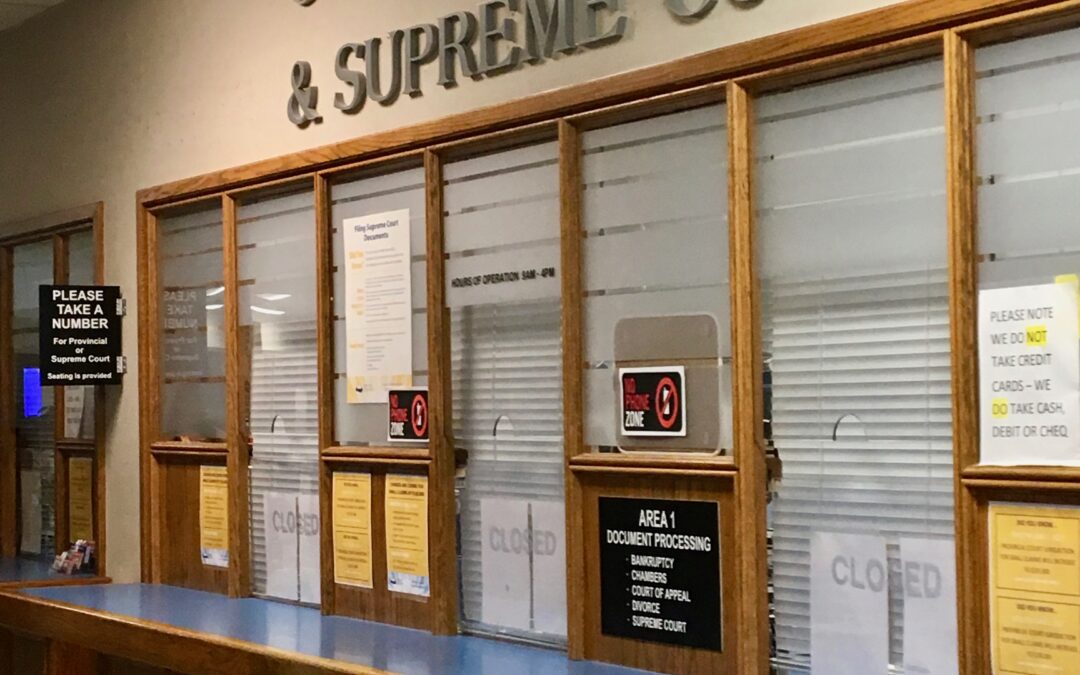July 13, 2020 marks the re-opening of BC Court Registries following covid-19 closures. This means that the public is now able to file court documents in-person, as well as using remote technologies. This is particularly good news for family law cases.
In the early phases of the coronavirus pandemic, BC courts were declared essential services. However, filing documents had to be completed by fax, email, or mail. Court registry staff continued to work remotely, and were accessible by phone when needed. This was helpful for family law cases, but it was not “business as usual”.
To protect the health of court workers and the public, court registries encourage filing documents by email and fax. Parties can attend court via telephone and video.
Current Court & Covid Precautions
People who prefer to attend court in person can expect the usual physical distancing precautions we have learned to expect in shops and public spaces. This includes: using face masks and hand sanitizer, separate entrances and exits, and plexiglass barriers.
Some family law appearances that were postponed between March and June, 2020, are now being rescheduled. Family Case Conferences and Family Management Conferences are being rescheduled with appearance by audio or video conference. The only family cases that will be heard in-person are trials, unless a judge orders otherwise.
To see what a BC courthouse looks like, with covid precautions, click on the following video link of the Duncan BC Courthouse.
For urgent matters, such as cases with alleged domestic violence, parties can apply for an “Urgent Without Notice Order”.
Some parents have tried using covid-19 risks to change in parenting time. The court may consider this in exceptional circumstances. For example, Madame Justice Murray recently decided ( Luc v. Washington , July 3, 2020), that a child could not travel to her father’s home in the US for her summer vacation because of high covid-19 infection rates there.
Alternatives to Court
A new “Early Resolution Process” has been created as an alternative to court. Parties can use this service to address changes to an existing agreement or court order. This can be used when one person has a change in income (related to Covid-19), that affects child or spousal support.
For many clients navigating the court system during the pandemic has been complicated and frustrating. Our lawyer mediator Michael Butterfield, can help you strategize your case, provide independent legal advice, and offers unbundled services to help you with your court paperwork.
Clients should also consider mediation as an alternative to the court system. Mediation tends to be much faster, can be less costly, and allows for greater input from the parties than a court process.
Jayne Embree, M.A.
Jayne holds a Masters Degree in Psychology. She is currently Mr. Butterfield’s Legal Assistant and the Mediation Coordinator at Butterfield Law.

